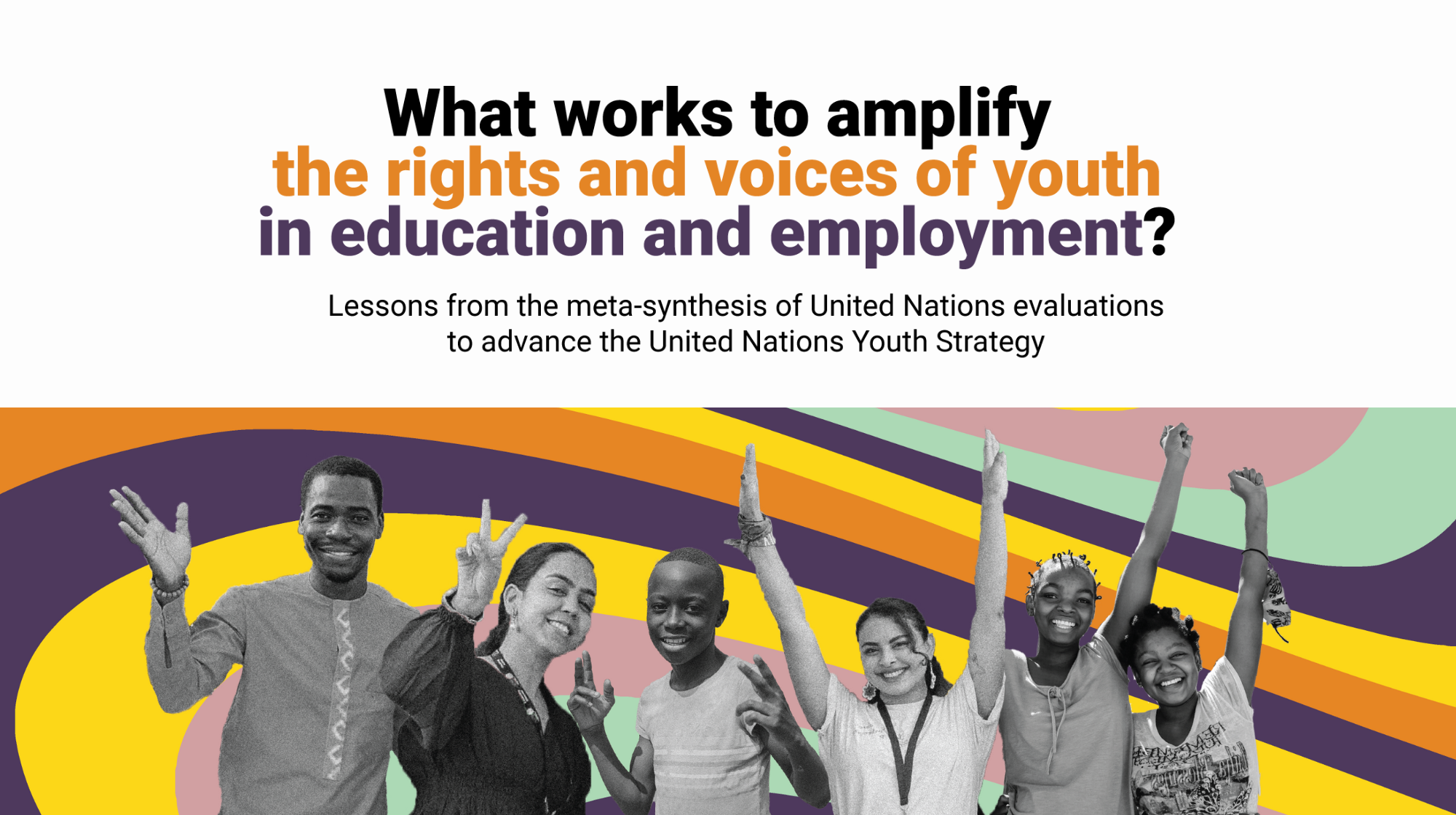Drawing on about 300 United Nations evaluations and employing a responsible AI-enabled methodology, this evidence synthesis report provides validated lessons on what works and what doesn't in advancing youth education and employment programmes. These lessons directly contribute to the implementation of the United Nations Youth Strategy 2030.
The lessons emphasize the need for targeted interventions and tailored approaches for specific disadvantaged youth groups, the importance of cross-sector collaboration and holistic approaches to enhance youth employability and personal development, the necessity of tailoring educational programmes to local and cultural realities, and the value of a balanced approach combining direct youth support and upstream strategies for long-term success. By applying these lessons to programme design, budget allocation and advocacy, programmers and decision-makers can ensure young people are better prepared for the future of work and learning.
The report is a result of an inter-agency knowledge collaboration, co-led by the UNFPA Independent Evaluation Office and UNICEF Evaluation Office, along with the EvalYouth Global Network, Generation Unlimited, Global Partnership for Education Youth Leaders, ILO, IOM, OHCHR, UNDP, UNESCO, and the United Nations Youth Office. The report was officially launched at a Youth ECOSOC Forum side event on 15 April 2025.
This is the third report, part of a series of four meta-synthesis exercises on lessons learned in the implementation of the United Nations Youth Strategy. The first synthesis focused on ‘What works to amplify the rights and voices of youth?’ by exploring youth participation and youth and human rights. The second synthesis focused on ‘What works to amplify the rights and voices of youth in peace and resilience building?’. Together this evidence package aims at strengthening the United Nations effectiveness on youth programming globally.
